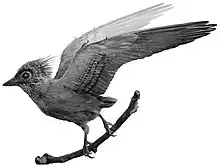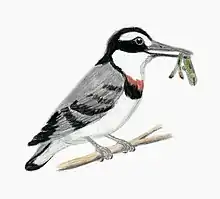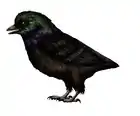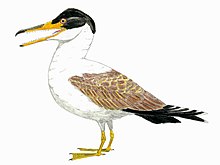Wellnhoferia
Wellnhoferia (named after Peter Wellnhofer) is a genus of early prehistoric bird-like theropod dinosaur closely related to Archaeopteryx. It lived in what is now Germany, during the Late Jurassic. While Wellnhoferia was similar to Archaeopteryx, it had a shorter tail and its fourth toe was shorter than in Archaeopteryx. Andrzej Elżanowski (2001) of the Institute of Zoology of the University of Wrocław, Poland, determined the differences resulted from a "phylogenetic reduction rather than individual variation."[1]
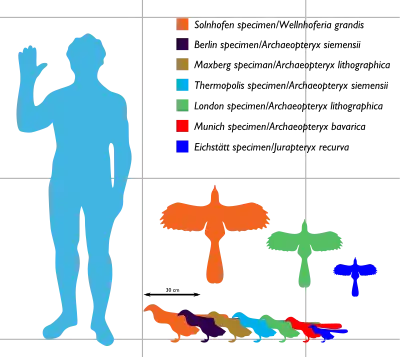
| Wellnhoferia Temporal range: Late Jurassic, | |
|---|---|
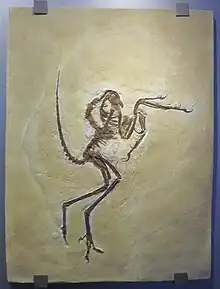 | |
| The type specimen | |
| Scientific classification | |
| Domain: | Eukaryota |
| Kingdom: | Animalia |
| Phylum: | Chordata |
| Clade: | Dinosauria |
| Clade: | Saurischia |
| Clade: | Theropoda |
| Family: | †Archaeopterygidae |
| Genus: | †Wellnhoferia Elżanowski, 2001 |
| Species | |
| |
The type specimen is the Solnhofen Specimen of Archaeopteryx (BSP 1999). Discovered in the 1960s near Eichstätt, Germany and described in 1988 by Wellnhofer (as a specimen of Archaeopteryx),[2] it is currently located at the Bürgermeister-Müller-Museum in Solnhofen. It was originally classified as a Compsognathus by an amateur collector.
Although Elżanowski found significant differences between Wellnhoferia and Archaeopteryx, a 2007 study by Mayr et al. [3] found Wellnhoferia was a specimen of Archaeopteryx lithographica. Senter and Robins (2003), however, supported Elżanowski's naming of a new genus.[4]
References
- Elżanowski, Andrzej (2001). "A new genus and species for the largest specimen of Archaeopteryx" (PDF). Acta Palaeontologica Polonica. 46 (4): 519–532.
- Wellnhofer, Peter (1988). "A New Specimen of Archaeopteryx". Science. 240 (4860): 1790. doi:10.1126/science.240.4860.1790. PMID 17842432. S2CID 32015255.
- Mayr, Gerald; Pohl, Burkhard; Hartman, Scott; Peters, D. Stefan (2007). "The tenth skeletal specimen of Archaeopteryx" (PDF). Zoological Journal of the Linnean Society. 149 (1): 97–116. doi:10.1111/j.1096-3642.2006.00245.x.
- Senter, Phil; Robins, James H. (2003). "Taxonomic status of the specimens of". Journal of Vertebrate Paleontology. 23 (4): 961–965. doi:10.1671/22. S2CID 85067334.
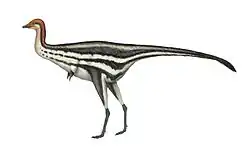
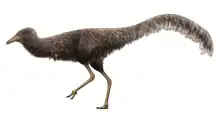
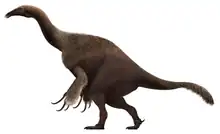
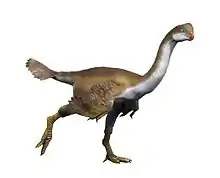
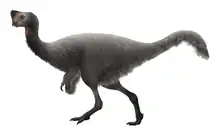
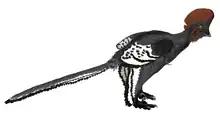


.png.webp)

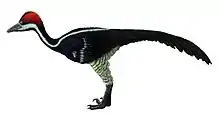
.jpg.webp)
